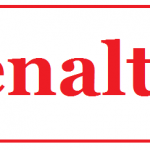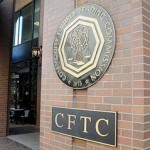Individuals and entities charged in global retail binary options fraud

The Commodity Futures Trading Commission (CFTC) announced that it filed two complaints in federal district courts in Florida against four individuals and three entities and issued seven administrative Orders filing and simultaneously settling charges against seven individuals and two entities relating to global retail binary options fraud that victimized U.S. residents.
CFTC Director of Enforcement Comments
James McDonald, CFTC Director of Enforcement, commented: “Today’s actions reinforce the Division of Enforcement’s strong commitment to root out fraud from our markets and to hold participants at all levels accountable. At the same time, these actions highlight the material benefits for those who cooperate with the Division and meaningfully assist the Division’s investigation. These filings serve as another example of how the Division’s cooperation program has served as a powerful tool enabling the CFTC to identify the most culpable wrongdoers and hold them accountable.”
Summary of Allegations
The CFTC’s actions take aim at the fraudulent solicitation tier of the binary options industry and allege that between at least September 2013 and December 2017, eleven individuals and five entities created and/or disseminated hundreds of millions of blatantly fraudulent solicitation communications that materially misrepresented the likelihood of profit and the success of various trading systems to induce prospective customers to open and fund binary options trading accounts. According to the complaints and orders, the binary options broker websites to which customers were directed were used to offer and execute illegal off-exchange binary options transactions.
In its investigation of this sweeping fraud, a number of individuals agreed to cooperate with the Division’s investigation, and that cooperation is reflected in the CFTC’s determination not to impose as significant civil monetary penalties as would otherwise be warranted for those individuals’ conduct.
The following individuals and companies (Defendants) were sued in the two Florida complaints (Complaints), which seek to find them liable for, and enjoin them from, fraud and prohibited advertising as alleged:
- Timothy Atkinson, a Florida resident, and his company All In Publishing, LLC (AIP), a Florida LLC;
- Jay Passerino, a Florida resident, and his company Gasher, Inc. (Gasher), a Florida company;
- Ronald “Ronnie” Montano, a Florida resident, and his company Montano Enterprises, LLC, a New Jersey LLC; and
- Michael “Mike” Wright, a Washington resident.
The CFTC also moved for a statutory restraining order, on notice, against Defendants Atkinson, Passerino, AIP, and Gasher, freezing assets, allowing inspection of records, and appointing a Temporary Receiver.
The following individuals and companies (Respondents) were found liable in CFTC orders (Orders) and are ordered to cease and desist from further violations of the anti-fraud provisions as found in the Orders, undertake to disgorge funds that they received to which they had no legitimate entitlement, and undertake to cooperate with CFTC staff in ongoing litigation and investigation:
- Travis Stephenson, a Florida resident;
- Martin Schranz, a resident of Switzerland and GSD Master AG, a Swiss Limited company;
- Antonio Giacca, a Florida resident;
- Grayson Brookshire, a North Carolina resident;
- Blake Barret, a North Carolina resident;
- William “Bill” Berry, an Oregon resident, and his company Berry Media Works, an Oregon LLC; and
- Shmuel Pollen, a New Jersey resident who used the alias Mike Williams.
As alleged in the Complaints and found in the Orders, the Defendants and Respondents participated in retail binary options fraud through their involvement in an activity known as “affiliate marketing,” a form of performance-based marketing that is predominantly conducted via email solicitations and promotional materials such as videos made available on internet websites.
As described in the Complaints against Defendants Atkinson, AIP, Passerino, Gasher, Montano, and Montano Enterprises, LLC and the Orders against Respondents Brookshire, Barrett, Stephenson, and Giacca, these parties lured prospective customers by disseminating — and recruiting other affiliate marketers to disseminate on their behalf — fraudulent marketing materials in dozens of marketing “campaigns” that instructed unsuspecting prospective customers to open and fund binary options accounts with “recommended” brokers to get free access to automated trading software that purported to generate astronomical profits with no risk of loss.
According to the Complaints and Orders, these marketing materials included numerous false or misleading statements about the marketed trading software designed to deceive prospective customers to open and fund binary options accounts, including: (1) fictitious trading performance and fake bank and trading account statements showing consistent profits with no losses; (2) actors depicted as true users and/or creators of the automated trading software falsely claiming they had earned significant profits through use of the software; and/or (3) false representations of purported actual live automated binary options trading and results using the marketed software. Meanwhile, the Complaints allege and the Orders find that the brokers operating the websites agreed to pay the Defendants and Respondents commissions for each new customer who opened and funded a binary options account with a broker resulting from the Defendants’ solicitations.
The remaining parties — Berry, Berry Media Works, Wright, Pollen, Schranz, and GSD Master AG — aided and abetted some of the fraudulent campaigns, as set forth in one of the Complaints and three of the Orders. Among other things, Berry, Berry Media Works, Wright, and Pollen willfully created scripts, emails, content for Internet pages, and sales videos that the affiliate marketers used to fraudulently solicit prospective customers as part of their binary options scheme knowing that the marketing materials they created included materially false or misleading statements and would be disseminated to prospective customers.
The Order entered against Giacca also finds that Giacca aided and abetted the acts of two Defendants in another CFTC enforcement action pending in Florida against two other affiliate marketers, Michael Shah and Zilmil, Inc. (see CFTC Release No. 7590-17, July 18, 2017).
The fraudulent solicitations used by the Defendants and Respondents were disseminated to and/or viewed by hundreds of millions of prospective customers in total with approximately one hundred thousand (100,000) customers opening binary options trading accounts and funding those accounts with at least twenty-five million dollars ($25,000,000) in initial deposits.
Also today, the Securities & Exchange Commission (SEC) filed related actions in parallel with actions undertaken by the CFTC. The CFTC’s Division of Enforcement thanks the SEC, the Fraud Section of the Department of Justice, and the Federal Trade Commission for their assistance.
The CFTC Division of Enforcement staff members responsible for this case are: Allison V. Passman, Brigitte Weyls, Joseph Patrick, Susan J. Gradman, Scott R. Williamson, and Rosemary Hollinger.
Source: CFTC
Related Posts
 Company and its owner ordered to pay $6.5 Million penalty in Binary Options fraud case
Company and its owner ordered to pay $6.5 Million penalty in Binary Options fraud case Individual and Company ordered to pay $755,000 for Binary Options fraud
Individual and Company ordered to pay $755,000 for Binary Options fraud Charges in international Binary Options and Digital Asset fraud scheme
Charges in international Binary Options and Digital Asset fraud scheme Court orders firms to disgorge ill-gotten funds in Binary Options fraud
Court orders firms to disgorge ill-gotten funds in Binary Options fraud Principal of Binary Options trading firm to a pay $200,000 penalty
Principal of Binary Options trading firm to a pay $200,000 penalty
























